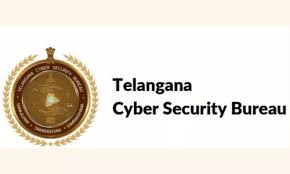Top Stories
Cybercriminals Exploit Family Connections to Commit Fraud

Authorities in Hyderabad have issued a stark warning regarding a new wave of cyber fraud that exploits emotional connections to extort money from victims. The Telangana Cyber Security Bureau (TGCSB) has reported that criminals are impersonating law enforcement officials and falsely accusing family members of serious crimes, including money laundering and human trafficking.
Shikha Goel, Director of the TGCSB, highlighted the psychological manipulation used by these fraudsters. They create a sense of urgency and fear of arrest, compelling victims to transfer large sums of money under duress. In one alarming incident, a senior citizen from Hyderabad lost an astonishing ₹1.50 crore in what has been described as a “digital arrest” scam.
Fraud Tactics and Psychological Manipulation
Cybercriminals typically reach out to victims via phone calls or WhatsApp video calls, posing as officers from the police or the Central Bureau of Investigation (CBI). They claim that the victim’s Aadhaar or bank account is linked to illegal activities, including money laundering or organ trafficking. These threats of immediate arrest are designed to induce panic and isolation, pushing victims into a corner.
The fraudsters often demand money for “verification” or “bail charges,” exploiting the victim’s fear of legal repercussions. The TGCSB emphasized that police authorities do not request money for any form of verification, investigation, or bail. Furthermore, there is no legal provision for a “digital arrest” under current laws.
Preventive Measures and Public Awareness
In light of these alarming tactics, the TGCSB has urged citizens to remain vigilant. They advise against sharing personal or banking information with unknown callers. Additionally, individuals are cautioned to avoid engaging in suspicious video calls that claim to originate from law enforcement or government agencies.
The Bureau’s warning serves as a crucial reminder of the lengths to which cybercriminals will go to exploit vulnerabilities within family dynamics. As these scams become increasingly sophisticated, public awareness and education are vital in preventing further victimization.
Citizens are encouraged to report any suspicious activities to authorities immediately, thereby minimizing the risk of falling prey to such fraudulent schemes. By fostering a culture of vigilance and skepticism around unsolicited communications, individuals can better protect themselves and their families from these insidious scams.
-

 World3 months ago
World3 months agoSBI Announces QIP Floor Price at ₹811.05 Per Share
-

 Lifestyle3 months ago
Lifestyle3 months agoCept Unveils ₹3.1 Crore Urban Mobility Plan for Sustainable Growth
-

 Science3 months ago
Science3 months agoNew Blood Group Discovered in South Indian Woman at Rotary Centre
-

 Sports3 months ago
Sports3 months agoBroad Advocates for Bowling Change Ahead of Final Test Against India
-

 World3 months ago
World3 months agoTorrential Rains Cause Flash Flooding in New York and New Jersey
-

 Top Stories3 months ago
Top Stories3 months agoKonkani Cultural Organisation to Host Pearl Jubilee in Abu Dhabi
-

 Science3 months ago
Science3 months agoNothing Headphone 1 Review: A Bold Contender in Audio Design
-

 Top Stories3 months ago
Top Stories3 months agoAir India Crash Investigation Highlights Boeing Fuel Switch Concerns
-

 Sports3 months ago
Sports3 months agoCristian Totti Retires at 19: Pressure of Fame Takes Toll
-

 Business3 months ago
Business3 months agoIndian Stock Market Rebounds: Sensex and Nifty Rise After Four-Day Decline
-

 Politics3 months ago
Politics3 months agoAbandoned Doberman Finds New Home After Journey to Prague
-

 Top Stories3 months ago
Top Stories3 months agoPatna Bank Manager Abhishek Varun Found Dead in Well









